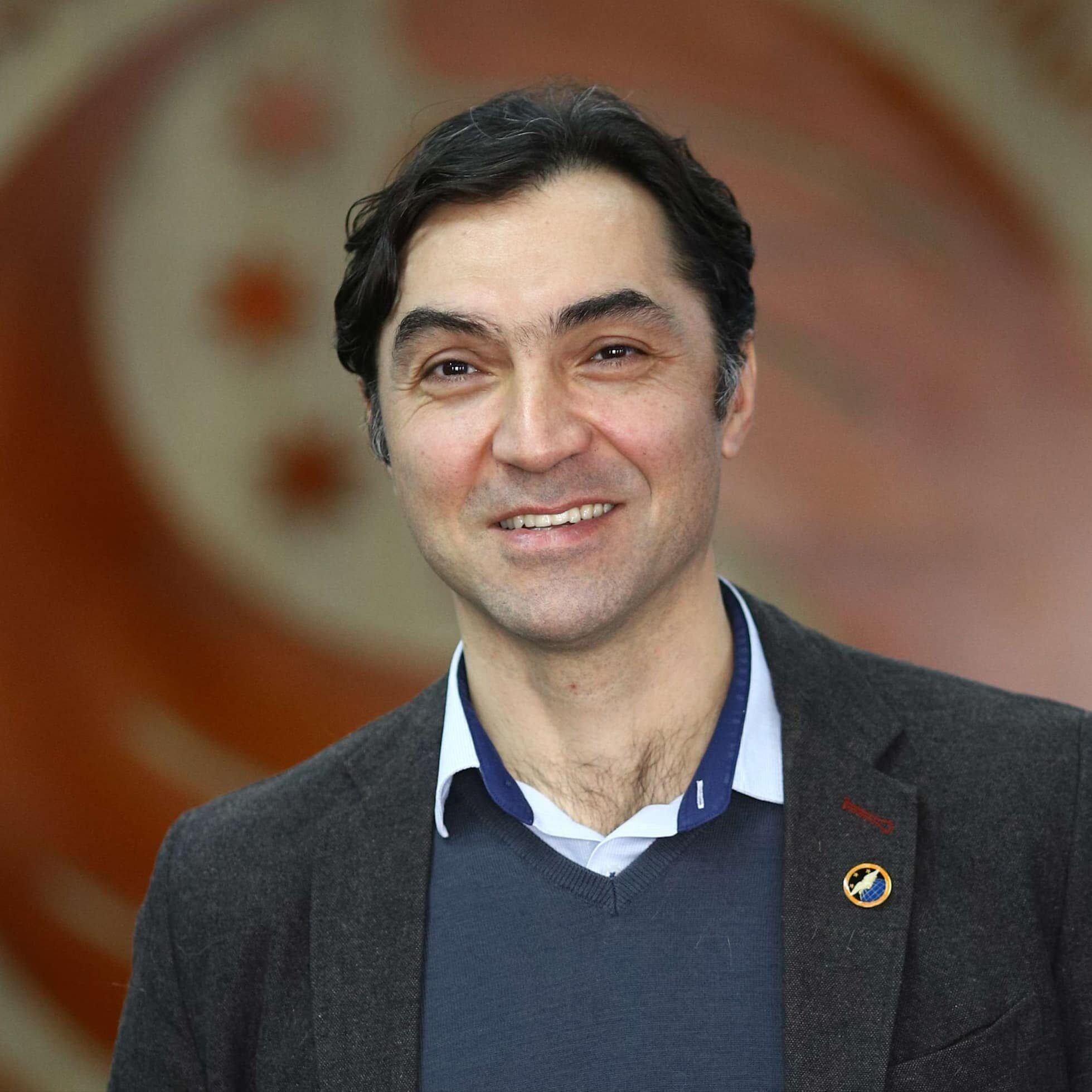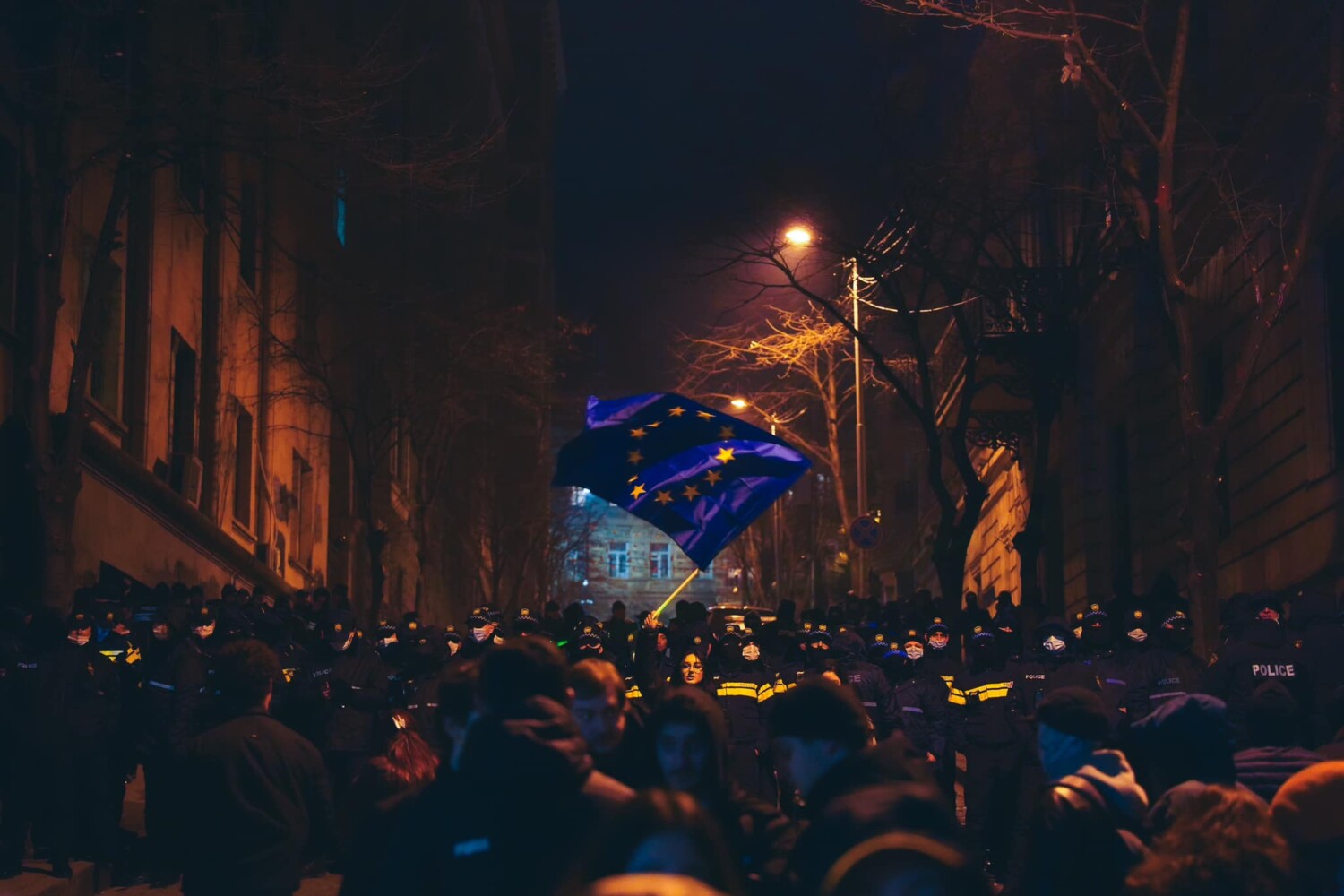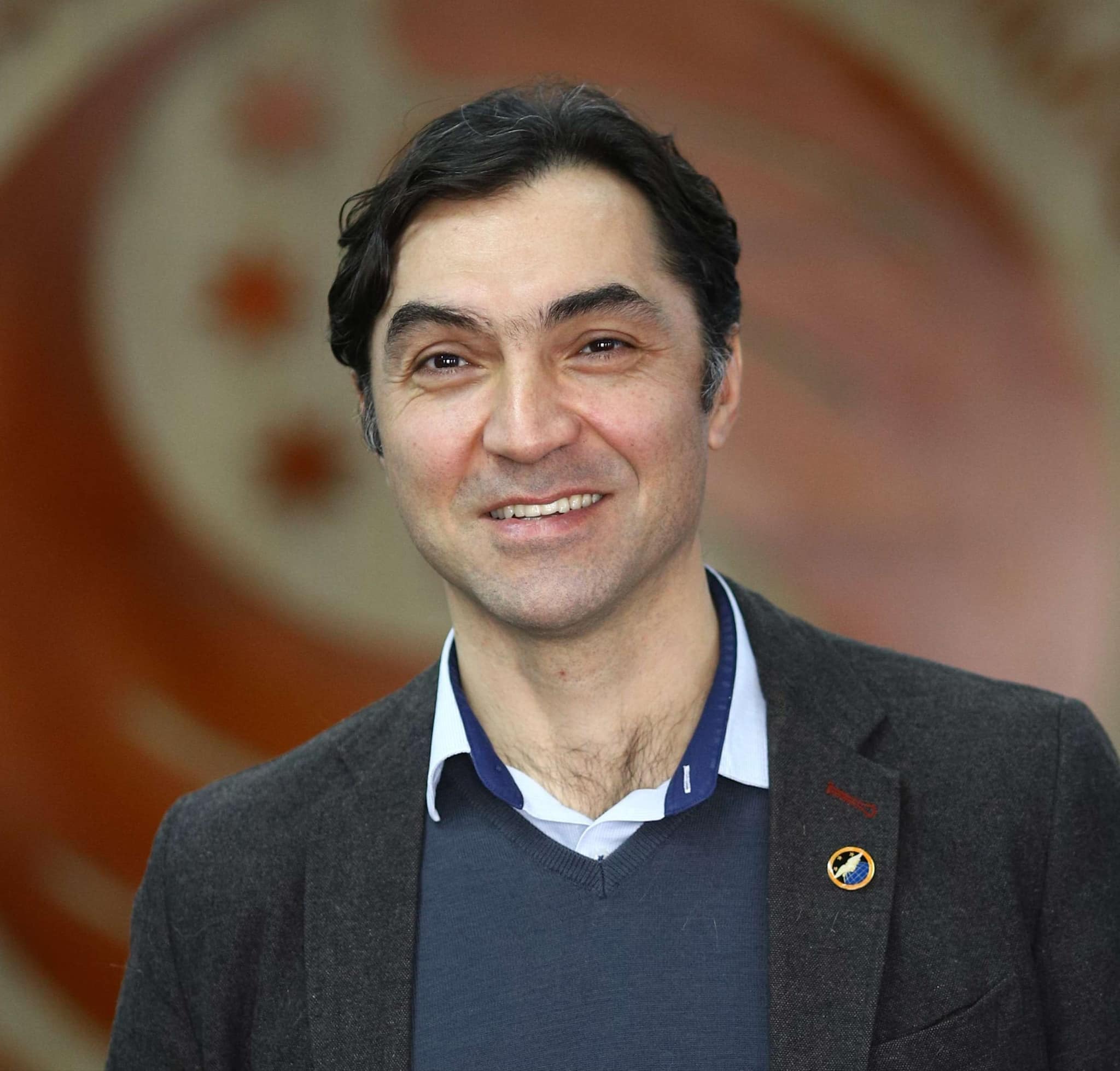© Photo Credit: Nika Bubashvili
The true birth of a nation cannot happen without the fundamental change in the socio-cultural and socio-political fabric of the people involved. This has even greater validity once the process of democratic transition is considered.
The violent pictures of the masked security forces attacking citizens, who were peacefully protesting and defending their European perspective in the streets of Tbilisi, could easily pop and quickly vanish in global news outlets, due to the geographic and political periphery of the events for the capitals in Europe and in Washington.
Yet similar to the Rose revolution in 2003 and the Russian invasion in 2008, Georgia continuously managed not only to signal its mere symbolic relevance for the South Caucasus, but in fact, to establish itself to a kind of geopolitical “variable” by ignoring of which the risk of facing (negative) consequences that go far beyond the regional scope, is well understood in Baku, Yerevan, but also in Ankara, Kyiv, Tallin or Warsaw. However, whether the same understanding is prevailing in the European Commission, other key institutions and capitals such as Berlin, Paris, or Rome is not fully clear.
While having developed a tailored approach for the South Caucasus Troika, The European Union clearly favored Georgia due to its comparably better democratic achievements and respective advances in implementing the Association Agreement and DCFTA. The key condition of developing democratic institutions was regarded as the major foundation for initiating the adoption of European standards and rewarding Tbilisi in a number of areas such as trade, energy, travel, transport, education etc. The problem is, however, that the emphasis on economic and other “soft” areas of cooperation, that goes predominantly along the technical lines of standardization, fundamentally prevents the EU from developing a truly long-term strategic plan towards Tbilisi, and the region as a whole. The challenge is even bigger, if the entire region is directly contested by an aggressive power (Russia) and the condition of democracy (even for Georgia) no longer serves as the top priority due to the direct threat of military invasion mixed up with Russian active measures inside the country.
So, why Georgia cannot be ignored?
As the ruling (Georgian Dream) party decided in 2022 to openly align itself with the Kremlin’s interests, it fully embraced the Russian disinformation and propaganda tools as well as the logic of policymaking, and increasingly showcased the evidence of the well advancing state capture, interpreted by many as the ongoing large scale Russian hybrid operation in Georgia. The idea that the most successful country in the past, with the overwhelming majority of the society that risks their lives, security and property in defence of European idea and values, can so easily be abandoned (by the West) and snatched away by the Kremlin, is more than simply alarming.
The absence of a clear EU-strategy and action plan towards Georgia, puts not only the democratic prospects of the country in absolute danger, but it also provides a great incentive to Kremlin to increase its hybrid influence and de-facto block Georgia from the EU-integration process.
This in turn makes the task of the domestic democratic consolidation in Armenia similarly very challenging if not impossible. In the end, the absence of the strategic approach to Georgia and the South Caucasus region is most vividly manifested by the lack of strong will and mechanisms to support local democratic forces and if necessary to strengthen or defend them adequately from the external threat, incl. from those of malign hybrid influence.
This aspect of European (in)decisiveness is especially critical today, as in this very historical moment and while bogged down in Ukraine Russia is still trying to assert its dominance in the entire post-soviet area.
Not for nothing, several competing narratives are resurfacing now that all have the ambition to define the nature and character of the strategic dynamics in the South Caucasus. For instance, some argue that the idealistic picture of the European perspective must be seriously corrected and brought down to harsh regional realities, in which the interests of regional superpowers such as Turkey, Iran and Russia must be given priority (e.g. 3+3 format). Respectively, the EU and the US even more, have to limit their objectives with having no say in this format. Hence, with the Trump administration still in formation, there are not many choices left for the EU. Either it slows down its current (very deficient) but still policies towards the Post soviet area and by that effectively allows Kremlin to create a consolidated belt of pro-Russian proxy states. Obviously, it will undermine the very idea of the united European continent, free and secure, in the years to come by encouraging pro-Russian and anti-EU forces and effectively create more disunity in the Union (with the respective domino like effects in its ranks and institutions).
Alternatively, the Union can fight back as a geopolitical powerhouse and ensure both: security and democracy in its periphery. The strong reference to the idealistic picture of future EU-membership perspective should not be translated into unrealistic measures.
EU-s engagement in the South Caucasus region must be based on a kind of revised Marshal Plan for the region, in which the Georgian democracy will be given a rescue stick and the EU-membership guaranteed by establishing additional security guarantees. By that EU, in essence, will avoid the NATO membership mistakes and lift the spell of the Bucharest Summit 2008. However, the second pillar of this plan must include a qualitatively new push for a stronger intra-regional cooperation between three regional countries in a manner similar to Europe after 1945. Interconnectivity to the EU must naturally accommodate more shared regional interests, and integrational efforts in multiple key sectors of the economy such as transport, energy and communication. The European Marshal Plan for the South Caucasus can in fact be an inter-and intra-regional cooperation with the strong foothold in Georgia and extensive proliferation of European policies and standards in the region, the effects of which will go far beyond the function of a technical standardization (a TUV-like) agency.
Shalva Dzebisashvili
He is an associate professor and the head of the Political Science and International Relations Program at the University of Georgia and leads the VW-funded post-doc project on institutional transformation and social practices in Georgi and Armenia. Dr. Dzebisashvili is actively collaborating with various Georgian non-governmental organizations and think-tanks such as the Civil Council on Defense and Security (CCDS), the Georgian Strategic Analysis Center (GSAC), the Georgian Institute of Politics (GIP) and is author of multiple academic articles and other publications.




